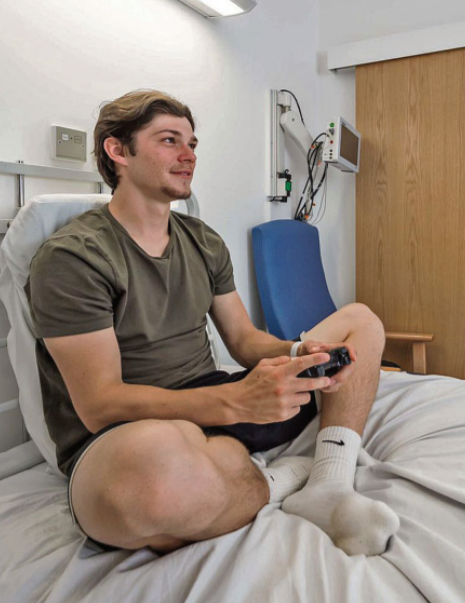
By ANGUS McNEICE in London
Medical community divided on issue of exposing humans to deadly virus
A laboratory in the United Kingdom is hoping to become the first in the world to intentionally infect volunteers with novel coronavirus in order to test the efficacy of COVID-19 vaccines.
Half of the participants in these so-called human challenge trials would be given a candidate vaccine for COVID-19, the other half would get a placebo, and all of them would then be exposed to novel coronavirus via a nasal spray.
The volunteers, aged 18 to 30, would then spend weeks quarantined at a private clinic, frequently checked on by researchers in hazmat suits running tests to determine if the vaccine provides protection against the disease. Those who display symptoms would be treated with antivirals or immunotherapeutics.
The human challenge model is a tried and tested way to assess vaccine efficacy. Such trials have previously been used in the study of influenza, malaria, typhoid, dengue fever, and cholera inoculations. Challenge studies have an advantage over traditional field trials when levels of a pathogen are low in the general population, as is the case with novel coronavirus during lockdown.
The method is also highly controversial, and the lab in question, London-based hVIVO, will have to navigate an ethical minefield to achieve its goal during this pandemic.
 “We are the only place in the world that is well down the road to development for COVID-19 human challenge studies,” Cathal Friel, chief executive of hVIVO parent company Open Orphan, told China Daily. “We will be able to very quickly guarantee to any pharma company in the world if their vaccine works.”
“We are the only place in the world that is well down the road to development for COVID-19 human challenge studies,” Cathal Friel, chief executive of hVIVO parent company Open Orphan, told China Daily. “We will be able to very quickly guarantee to any pharma company in the world if their vaccine works.”
Friel is currently in talks over running challenge trials for a dozen COVID-19 vaccine developers in Europe, North America, and Asia, three of which are from China. Before commencing the trials, hVIVO must gain approval from the ethics committee at the UK’s drug regulator, the Medicines and Healthcare products Regulatory Agency.
Among a host of considerations, the committee will attempt to answer two core questions: is COVID-19 too dangerous for a challenge trial, and are existing treatments effective enough if and when volunteers fall ill.
Challenge trials generally involve around 100 volunteers and are typically used to test vaccines against non-lethal illnesses, such as the common cold, or diseases for which highly effective treatments exist, such as malaria. The trials are not considered for lethal diseases for which existing treatments are limited, such as Ebola or Marburg virus.
While severe cases of COVID-19 are rare among healthy young people, some in the medical community warn that not enough is yet known about the disease to run such trials, and doing so would be extremely risky. Others argue that this risk can be mitigated with well-designed trials, which would in turn greatly accelerate vaccine development, potentially saving hundreds of thousands of lives.
Vaccine developers are faced with a conundrum during this stage of the pandemic. Field trials involving tens of thousands of volunteers are most efficient when a pathogen is thriving in the general population. But lockdown measures in some regions have been so effective that there is not enough COVID-19 going around to challenge a vaccine’s efficacy.
Link here to the original story
